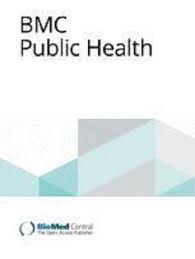Maika Ohno, Jan Vávra, Petr Jehlička. 2025. „The relationship between food security, fruit and vegetable consumption, and health-related factors in the late COVID-19 pandemic in Czechia: a cross-sectional study“. BMC Public Health. 25: 2204. ISSN 1471-2458. Dostupné z: https://bmcpublichealth.biomedcentral.com/articles/10.1186/s12889-025-23154-9
Food insecurity is one of the social determinants of health and affects dietary quality and well-being. This study aimed to examine the associations among food insecurity, sociodemographic and economic factors, and health-diet characteristics, with a particular focus on fresh fruit and vegetable (FV) consumption during the late COVID-19 pandemic in Czechia.
Data from a cross-sectional survey, ‘Living through the Pandemic', collected in October 2022 as part of a Czech longitudinal survey, were analysed. The study included a representative sample of Czech adults (N = 1,499, aged 20 years and above). Binary logistic regression was performed to assess associations among food insecurity, sociodemographic-economic factors and health-diet factors. Food insecurity was assessed as experiencing or worrying about a lack of food. Sociodemographic-economic factors included sex, age, education, income, number of children and home food production. Health-diet factors included BMI, limited mobility and daily fresh FV intake, defined as eating fresh FV at least once per day. Determinants of daily fresh FV intake were analysed separately.
Over 30% of respondents (N = 486) were at risk of food insecurity. Individuals aged 20–34 years, those with lower educational attainment, and those with limited mobility were more likely to report food insecurity. Compared with the high-income category, individuals in the lowest income category had a sevenfold higher likelihood of reporting food insecurity. Food-insecure individuals had approximately twofold higher odds of not having fresh FV daily. The odds of not having fresh FV were particularly higher among younger adults (20–34 years) and males. Individuals with BMI ≥ 25 kg/m2 had 30% higher odds of not having daily FV, with marginal significance (p = 0.05). Educational attainment, rather than income, was a key predictor of FV consumption. Home food production contributed to better food security and higher FV consumption.
In Czechia food insecurity and the limited FV intake relate to younger adults, socioeconomically disadvantaged individuals, and those with limited mobility. Lower education attainment, rather than income, predicts limited consumption of FV, underscoring the long-term impact of early education on healthy eating. Given the high prevalence of overweight and obesity, inadequate FV intake presents a public health concern. Policies should aim to improve access to affordable and nutritious foods, and strengthen education on healthy eating habits to mitigate long-term health disparities.
Oddělení
Témata
Spotřeba, Veřejné zdraví, Životní styl
